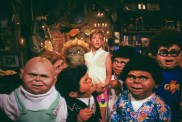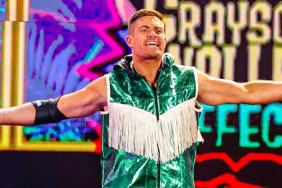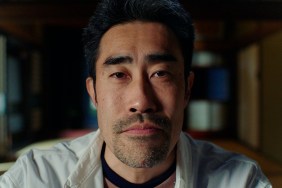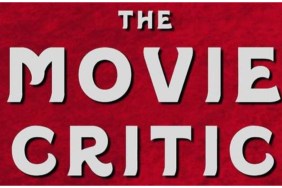It helps that his latest movie, We Are Marshall, is a poignant and moving football drama that would make even the most experienced veteran director proud. It tells the story of Huntington, West Virginia’s Marshall University who tragically lost their entire football team in a plane crash in 1970 and had to push through their mourning in order to rebuild their football program from scratch. It stars Matthews McConaughey and Fox as the coaches who take on that arduous task.
ComingSoon.net had a chance to sit down and talk with this unique director about his new movie and the impression the public has of him. We learned a number of interesting things, but the most important lesson we learned was NEVER ASK HIM ABOUT HIS NAME!!!
ComingSoon.net: How did you originally get involved with this movie? Was this a script you found and shepherded along?
McG: No, I was just looking to improve as a storyteller and wanted to get more substantial material. I was aware of this event, but I wasn’t aware that there’d been a screenplay. That’s actually something I heard from Basil, the producer, he sent it to Jean Algood, she’s an executive at my company Wonderland, and she said, “I think we found your next movie. It’s just this really great character piece that you keep describing as the sort of thing you want to make. I think you should read it.” So I read it, and very similar to the McConaughey experience, I put it down and said, “That’s it. If they’ll have me, I want to do this.” I had to go in and sell myself and make it clear to Warner Bros. what my vision was of the movie, and why I thought I could do it justice.
CS: So the script was already at Warner Bros. at the time.
McG: Yes, indeed. It was already at Warner Bros., but it was not greenlit, there was no heat, there was nothing happening on the film.
CS: I’m glad to hear that you have an interest in doing different things. I personally liked “Charlie’s Angels: Full Throttle”…
McG: Me, too, but you get that that’s that thing and I’m just trying to do other things as well. I’m not trying to neglect that. Like I said, Ang Lee is able to do a lot of things, Steven Spielberg can do a lot of things. Look at Soderbergh, the guy will do the most intimate cerebral film imaginable and then he’ll go make an “Ocean’s” movie and that’s pretty doggone, too. So I’m just trying to be flexible and just trying to continue to improve and grow. As long as I can continue to grow and don’t max out or for that matter, move backwards, I’ll be very, very pleased, and when I feel like I’ve stopped growing, I’m just going to stop making movies. But right now, I’m really excited about it.

McG: I’m going to try to do a movie a year. That’s funny you should say that, because I was just talking to all the guys who I work with and one of the things I want to try to do is no more big I mean, I didn’t intend to have such a big hiatus last time, but there was the misstep with the Superman thing, and I was on that for a year and a half, so there was that moviemaking cycle. That’s what happened there. Again, I go right back to the source, Spielberg, the guy’s posting one movie, he’s prepping another, and he’s obviously got a lot under his belt. I just want to be much more productive. If I had it my way, I’d have a movie every year or certainly every 18 months because it’s tough to make a movie in a year.
CS: Going back to “Marshall,” you had this script and then you had to go to this town where the tragedy happened and had to convince them to let you shoot there and get the people behind you. How did you go about doing that?
McG: We had to go there and get them excited. Basil went there once or twice before I did, but I went also, first just anonymously just do a lot of listening, and ultimately to interface with the president of the university and tell him what my story was. I had to literally go to the principal’s office, like in your old school days, and pitch to Stephen Kopp, who is the president of Marshall: “This is the take. We start here at the East Carolina game, we very quickly get through the crash, Langwel comes to town, we go about the business of rebuilding. For a moment, there’s false optimism, then the Moorehead State game
” (McG continues to recap the film, but we’ll cut it off here as to not spoil anyone’s enjoyment.) It’s a very fair portrayal of grief, that some people do well and some people don’t, and they said, “Well that sounds like what happened. Why don’t we try it?” and we slowly began to put one foot in front of the other and do it. And boy, they didn’t give their trust away, I can promise you that. I had to bring them to the set and show them dailies and I had to show them cut footage. We were very proud of what we were doing, and I had a vision of what the film was going to be the entire time, so I had nothing to hide.
CS: Was the president of the university someone who would have been living in the area at the time of the crash?
McG: I’m not certain if he’d been in the area or not, but I suspect he had. I don’t know but he’s the current president of the university and sort of the leader of the community. I mean, the mayor of Huntington is in the movie, in the press conference scene with McConaughey. That’s how intimate it was, and then the governor Joe Manchin would come by, he came by four or five times, and it was just that kind of film.
CS: I really enjoyed the film, but I know many critics and others who immediately see your name on a movie like this, and they immediately think they know what to expect. I’m curious to know what you think about that? As a critic, I try to see every movie as if it was the first movie I’ve ever seen or the first movie ever made.
McG: I think that’s the correct way to do it, so hats off to you for being that clear, and just taking in a movie for what a movie is. I try to watch movies the same way, but I also realize that it’s the privilege of the public to put people in little boxes and say like aren’t you from ComingSoon? People might go, “Oh, ComingSoon, that’s the web site that does this.” Or “Fox, that’s that right wing
” We live in a world that requires some degree of speaking in shorthand, so if people want to say, “Oh, he’s McG, he’s fast cuts, he’s hyper color, he’s loud rock ‘n’ roll.” Well, “Charlie’s Angels” suggests that’s where my interests lie, but I like a great many things, as I’d imagine you do. I think a great film can exist in any genre and I like films of this nature, and I definitely wanted to make one. That’s not to say I won’t ever go back to action or comedy or anything fun like that. I’m just in a place where I’m excited by the challenge of just trying to grow. It’s not out of bitterness or anger. It’s hard to make two movies that have over $500 million in box office, that’s very difficult to do. I’m proud of that. But by that very token, I wanted to go into a new direction and certainly, it’s the privilege of the public to say “We don’t buy it from this guy.” But I’ll keep my head down and I’m willing to pay my dues and hopefully, I’ll make that “Every Which Way But Loose” to “Mystic River” transition.

McG: My name sucks!! It’s really a point of frustration for me.
CS: But couldn’t you at any time just say that you want to make a movie under your full name rather than this unconventional name you’ve chosen for yourself?
McG: But that would be so false, you know what I mean? It’s so funny because my name has been McG since the day I was born, so that’s just who I am. It’s got nothing to do with Hollywood, it’s got nothing to do with filmmaking. My mother calls me McG. Kalamazoo, Michigan, 1970, that’s it! No nickname there! My name is Joseph McGinty Nichol. My uncle was Joe, he was around a lot; my grandpa was Joe, and he was around a lot, so I was the youngest one, they said, “We’re going to call him McG, short for McGinty.” It ends there. There’s no “I’m Cher,” you know?
CS: I think it’s because you come from the music video background, everyone just assumes that’s the thing to do in that world.
McG: I get it, but for me to change my name, “Well, I’m going to go by Joseph Nichol,” that would be the ultimate compromise. That for me would be the ultimate sell-out. That’s not who I am. There’s not a person on this planet who calls me Joe or Joseph, so I am who I am and if people want to characterize me as a function of my name, that’s unfortunate, and it just is what it is. But I’m just trying to put together a body of work that speaks for itself.
CS: Well, this movie is definitely a step in the right direction. If someone went in expecting and saw this movie, they’d probably be surprised that it’s from the director of “Charlie’s Angels.”
McG: I wonder what the takeaway experience would be if Alfonso Cuarón had made the picture or if it said Jean Pierre-Jeunet or even David Fincher.
CS: I’m curious. When test audiences see the movie, do they know you directed it?
McG: I think they know that it’s a McG movie. I think they share that when they say, “Do you want to see a Matthew McConaughey film?” and then they say one line about a plane crash and a football team, and then they say “directed by McG” I think. That’s my understanding of the recruiting process.
CS: I think a lot of people assume from your music video background that it’ll be a lot of fast cuts and camera tricks, though I’ve talked to directors Jonathan Dayton and Valerie Faris, and they strived to avoid that when making “Little Miss Sunshine.”
McG: Here’s the thing. It’s very interesting, because you’re right, there’s a terrible stigma that goes with that. Terrible. Let’s face it, most music videos are absolute sh*t, but there was a time when music videos were being made by Dayton and Faris, David Fincher, Spike Jones, Michel Gondry, Mark Romanek, you know what I mean? And those are some of the most proficient filmmakers of our time right now. It’s a great place to push film through a camera and cut your teeth and it’s unfortunate that there’s only the stigma. Sure, you can come out of there and be a complete ***hole that has no talent whatsoever, but you can come out of film school and be a talentless ***hole. It’s perceived as only a liability when sometimes it’s an asset.

McG: Well, to me, if you’re smart, you use it as an opportunity to like I say, shoot a lot of film, develop an imprint, get used to the rhythm of making your day, understanding how to interface with actors and camera departments. You get to shoot on the mountaintop, you get to shoot in the desert, you get to shoot in the water, you get to shoot at night, in the snow, on the car, and I got a lot of experience. I’m ready to go make a movie. I’ve done a lot and I’m ready to go. I’m not somebody who made a 7-minute short at USC film school and now I’m going to go make a movie.
CS: This is a very moving picture, so was there a lot of crying on the set?
McG: There was. That’s what we’re most proud of. Speaking of directors, there are a lot of great directors I revere. I revere Alfred Hitchcock
but he’s never made me cry, so if I can make an audience cry, I think then “mission accomplished.” I’ve achieved what I set out to do, to handle the emotional fabric of the audience in such a way where I can actually bring them to tears would be a tremendous source of pride and joy. To have a film where you both laugh and you cry, I think it’s very difficult to do, and I think it just comes down to a few films. “Cinema Paradiso” was a film like that, which I think it’s a masterwork. I don’t know. I think time will tell if we did it properly or we did it improperly, but I’m delighted to go to the test screenings and see people audibly cry and hear people audibly laugh. I’m thrilled that’s the response we’re getting.
CS: You’ve mentioned that you’d like to do a WWII movie, but another movie you’ve been attached to is one based on the “Hot Wheels” toys. Is that something realistic?
McG: That’s something I’m going to produce, it doesn’t feel right for me as a director at this time. I’m going to produce it. We just have a take on that, it’s the story of a kid trying to reconcile with his father. It’s a kid who steals his dad’s racecar and ends up going through a sort of “Back to the Future” portal into this world, and he has to reconcile his relationship with his father. It’s very “Stand By Me” and it should be a good family movie, but it’s not for me as a director at this time. I mean, it’s the biggest toy in history. It’s not a joke.
CS: Still, you have to wonder whether a movie based on “Hot Wheels” can be taken seriously. I guess that was the case when they originally announced a movie based on “Pirates of the Caribbean,” too.
McG: Well, it’s hats off to Gore Verbinski and Johnny Depp and for that matter, Jerry Bruckheimer, for doing the right thing. Another example “Speed Racer,” that doesn’t sound all that interesting to me until you tell me that the Wachowskis are doing it. Now all of a sudden I go, “Woah! I can’t wait to see that.” It’s going to open on a rainy Mt. Fuji cliff with cars zipping around the corner, they’ll do something great! It’ll be interesting and they’re talented filmmakers, so just by virtue of their attachment, you go from, “That doesn’t sound so interesting” to “Wow, I can’t wait to see that!”
CS: Would you want to get “Hot Wheels” movie out before “Speed Racer” or wait to see how that does?
McG: I don’t know. That project’s just sort of in development and we’ll see where it takes us.
CS: I was wondering, because it must be odd having two liked-minded projects coming out at the same time. Like with “Marshall,” you’re down South making this movie, and then all of a sudden, two more football movies pop up.
McG: We were very aware of it. Look, there were none last year and then all of a sudden, boom, there’s three this year. It’s whatever’s in the cosmos, you can’t really control it. All of a sudden, you go, “Whoops, Disney is making Invincible and Sony is making Gridiron Gang and Warners is making We Are Marshall,” so we’ll see if there’s enough appetite for that sort of movie out there. I mean, we’ve always fancied this movie as having a football through line but not being a football movie. It’s a movie about human beings, it’s a movie about survival, finding family and finding a reason to keep on living when you just feel like giving up. That’s what this movie is. Obviously, 75 people die in this movie, it’s a real drama in that respect.

McG: It sure does. I mean, it feels great to have that level of confidence from them, especially ’cause we were going to come out October 27 and they got to look at the film and go, “Oh, wait, we really like this. We think we can make this work as our Warner Bros. Christmas release.” So to have that level of confidence from them was humbling and pretty great, so I’m really thankful in that respect. They’re a bunch of good people. I hope you get a chance to talk to Alan Horn or Jeff Robinov who runs the studio. They’re real stand-up straight shooters. They’re cool, you’ll like them. That’s part of their elegance I suppose.
(At this point, we turn to the Warner Bros. publicist nearby and ask her if she can arrange that interview, but she’s laughing too hard at the thought to respond. We’ll take that as a “no.”)
McG’s football drama We Are Marshall opens everywhere on December 22.









